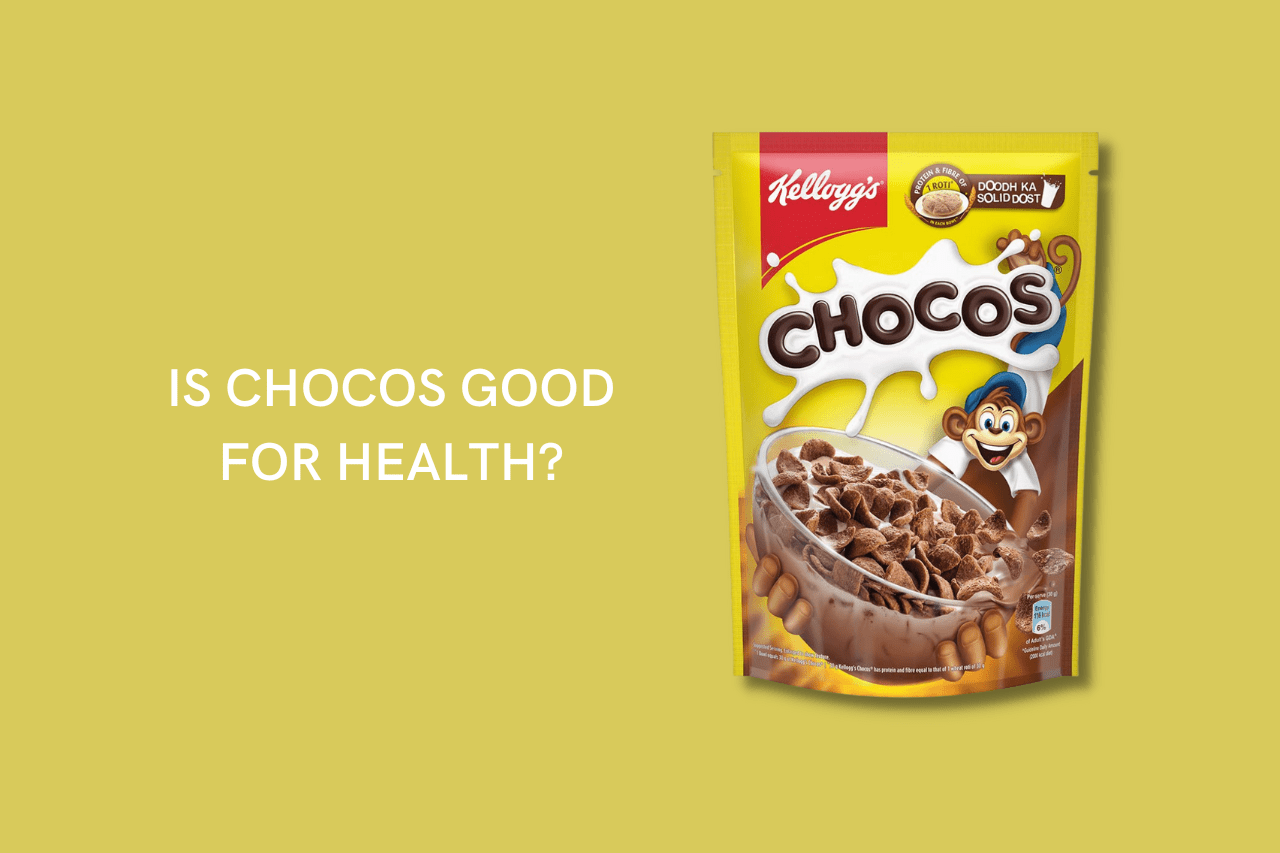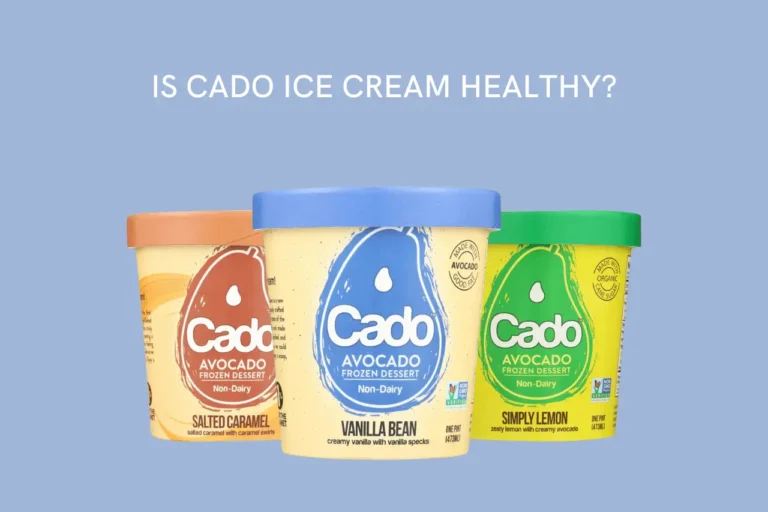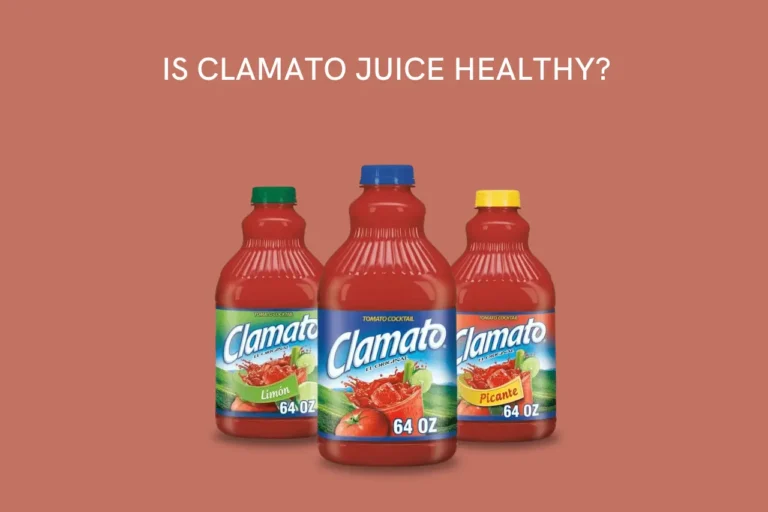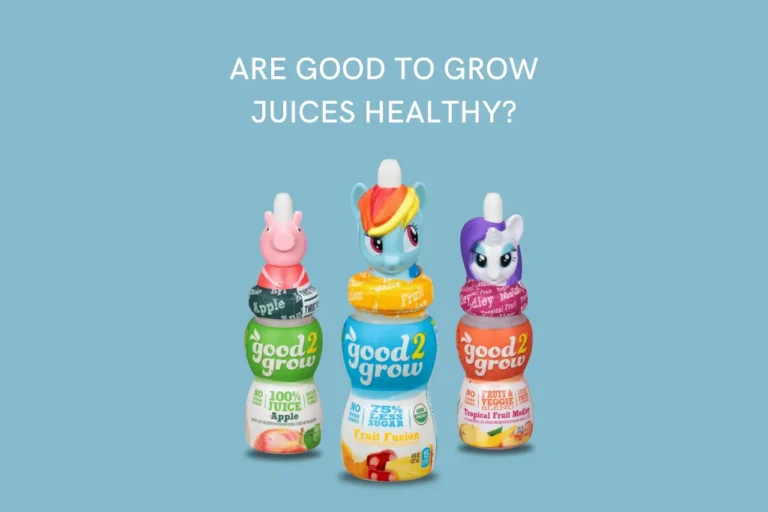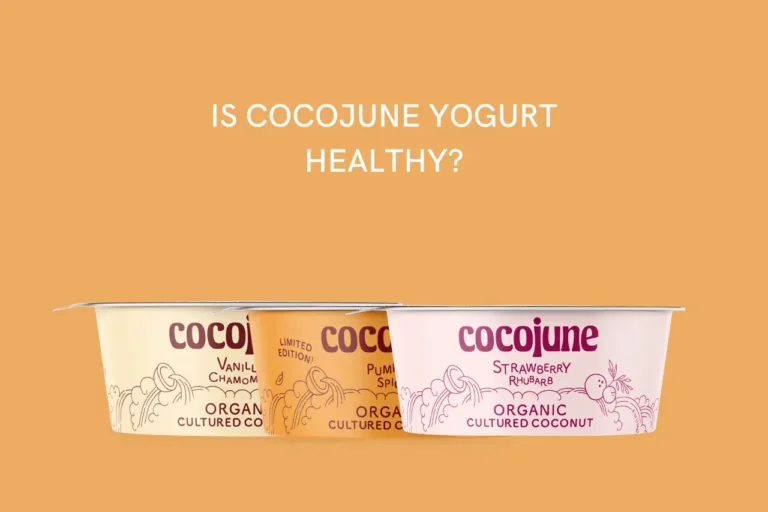If you’re a fan of breakfast cereals, you’re likely familiar with Chocos.
Chocos is a popular chocolate-flavored breakfast cereal from Kellogg’s. It is primarily made up of wheat solids, wheat flour and refined wheat flour.
It is specially marketed towards children and comes in a variety of fun flavors such as magic heart, chhota laddo, webs, duet and more.
And while kids love the taste of this crunchy cereal, is Chocos good for health?
Short answer: Chocos is not good for health as it is made up of refined wheat flour, contains sugar and is low in nutrients. It also contains unhealthy ingredients such as palmolein oil and butylated hydroxyanisole.
Let’s dive deeper into Chocos, including its nutritional value, ingredients and more.
Also read: Is Maggi Good For Your Health? Here’s What Research Says
Nutritional value of Chocos
| Nutrients | 30 gm serving | 100 gm serving |
|---|---|---|
| Calories | 116 | 387 |
| Fiber | 1.5 g | 5 g |
| Protein | 2.7 g | 9 g |
| Carbohydrates | 25 g | 83.6 g |
| Sugar | 9 g | 30 g |
| Iron | 1.5 mg | 5 mg |
| Calcium | 159.9 mg | 533 mg |
| Zinc | 0.6 mg | 2 mg |
Ingredient in Chocos
The exact ingredients in Chocos may vary depending on the flavor you choose.
In general, it is made up of wheat solids, wheat flour(atta) and refined wheat flour(maida) as the main ingredients.
Other common ingredients that you might find include:
- Sugar
- Cocoa solids
- Edible vegetable oils (palmolein)
- Cereal extract
- Iodized salt
- Color (INS 150d)
- Vitamins and minerals
- Antioxidant (INS 320)
- Artificial flavor
5 Reasons Why Chocos is not good for Health

1. Use of refined wheat flour (maida)
Kellogg’s Chocos is made up of about 31% of refined wheat flour.
Refined wheat flour is made using a hefty of processing. As a result, it becomes less nutritious. It is high in calories, low in dietary fiber and other essential vitamins and minerals.
It is also high in glycemic index, meaning it releases energy quickly and increases the risk of a high spike in blood sugar levels.
Research has shown that high consumption of refined grains is linked to a higher risk of chronic diseases such as heart disease, type-2 diabetes, obesity, and cancer.
2. Low in fiber
People often choose breakfast cereals like Chocos because they’re looking for a quick and convenient option to keep them full until lunchtime.
But it doesn’t happen.
A single serving of Chocos doesn’t even contain 10% of the daily recommended fiber. As a result, you don’t feel full, and hunger strikes hours before lunchtime.
Eating enough fiber in your diet helps you feel fuller for extended periods. Not only this, but fiber also helps to regulate your blood sugar levels.
Ideally, a 30g serving of Chocos should have 3-5 grams of fiber.
But Chocos are not even near this amount of fiber.
3. Loaded with sugar
Sugar is one of the main ingredients in Chocos, which makes it delicious.
A single serving of Chocos contains 9g of sugar, which is about 25% of the daily limit for men and 37% for women.
Consuming Chocos provides you with a significant amount of your daily sugar intake.
Excess sugar consumption can lead to many serious problems, such as weight gain, diabetes, high blood pressure, inflammation, and obesity.
4. Low in nutrients
Kellogg’s Chocos is marketed as packed with 10 essential vitamins and minerals.
And while it does contain some vitamins and minerals, the levels are not sufficient enough to provide significant nutritional value.
For example, it contains 3mg of vitamin C, which is not even 5% of the daily recommended.
The levels of other nutrients like niacin, folate, iron, and zinc are also quite low.
Although consuming Chocos with milk can provide you with a good dose of nutrition, on its own, Chocos is low in nutrients.
5. Contain synthetic antioxidant
Antioxidants are nutrients that help protect your cells from the damaging effects of toxins.
That means antioxidants are good for you. Right?
Unfortunately, not those present in Chocos.
Chocos contain an antioxidant called INS 320 or BHA (Butylated hydroxyanisole), which is not a natural but a synthetic antioxidant.
This antioxidant is not added to benefit your health but rather to protect Chocos from deterioration caused by oxidation.
Consumption of synthetic antioxidants can have various negative effects on health, such as:
- DNA damage
- gastrointestinal disturbances
- aggression
- mood disturbances (depression, insomnia)
- asthma
- eczema
- dermatitis
- rashes
Some countries like Japan, Europe, Canada, California and the UK have banned this antioxidant. However, it is still used in some countries, such as India.
Also read: No, Chocos Are Not Good For Weight Loss – Here’s why
Final words
Chocos might make your or your child’s milk taste chocolaty and delicious, but it is not good for your health.
It is made from refined wheat flour, contains sugar and is low in nutrients. Additionally, it contains Butylated hydroxyanisole, a synthetic antioxidant that has been banned in many countries.
Next time you go grocery shopping, think twice before grabbing Chocos for you or your child.
There are plenty of good breakfast options that you can go for. But Chocos is not one of them.
Found this information helpful? Share it.
Here are a few other posts that might also be helpful for you.
